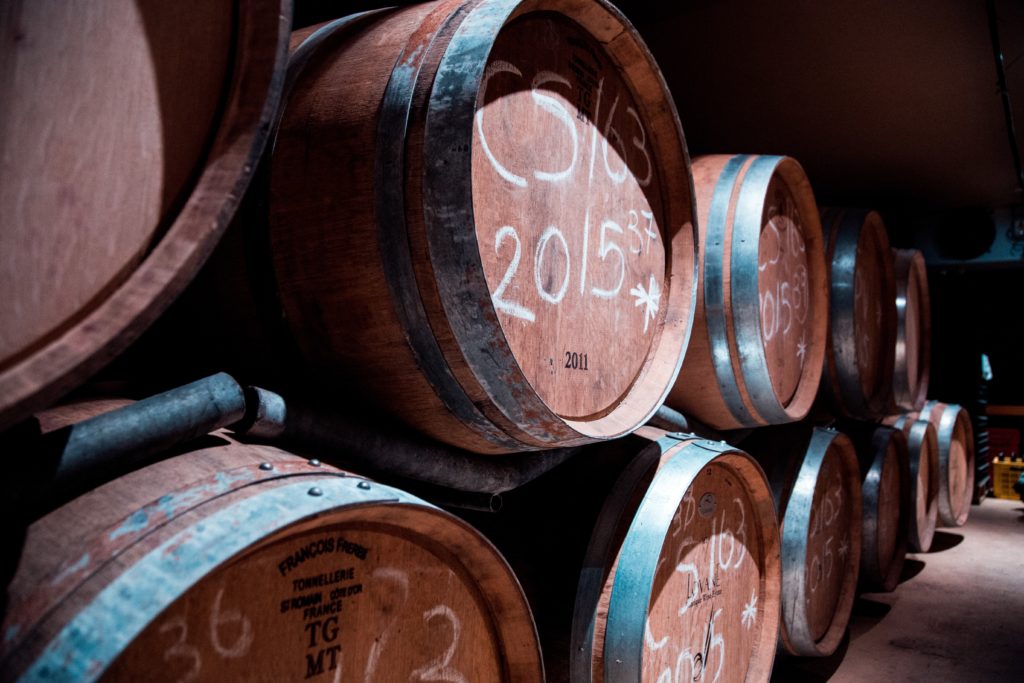Florida Farm-to-Flask: SB 46 “Craft” Distilleries Bill – Get to Know Your Local Farmer, Fast

Hi Brewers’ Law distillers, vintners, brewers, distributors, industry followers! Kara Ann Groves here of Groves Law, the ag-focused branch of BrewerLong, subbing in to bring you the crossover you didn’t know you needed.
I’ve been around since the start of Brewers’ Law, and we now collectively service and connect producers and wholesalers across these industries. And SB 46, or the Craft Distilleries Act, presents just the opportunity for me to drop by and talk through the big agricultural changes key to maintaining this new “craft” distillery license.
Brewers’ Law already broke down how significant this is for the craft liquor and bar industry generally here. And while there are several other hurdles to jump before qualifying as a “craft” distillery, I’m here to talk about arguably one of the biggest. Because if you want to become licensed under the Act (qualifying for in-house consumption and producing three times more than you could previously!), it’s time to start buying local.
Like Florida’s Farm Winery Act and many “farm” or “craft” bills around the country, SB 46 aims to facilitate partnerships between established craft beverage and ag producers. Specifically, by July 1, 2026, 60% of the total product of a craft distillery licensed under the Act must be distilled in Florida and contain at least one Florida “agricultural product.”
So what exactly is an “agricultural product” and how can these industries make this work? After all, Florida’s infertile soil and harsh weather don’t always mix well with a variety of crops. Unfortunately, “agricultural product” is not defined under the Act, but there are a few definitions elsewhere in the Florida Statutes and other states that may shed some light on what will qualify.
Licensing provisions of Chapter 604 Florida Statutes provides its definition as any “natural products” of a variety of agribusinesses. However, citrus (except limes), grain and sugarcane are not included. Its definition under “agricultural advertisements” (Fla. Stat. 571.03) is more expansive to include “any horticultural, aquacultural, viticultural, dairy, poultry, apicultural, or other farm or garden product.”
In New York, rye, peaches, grapes, corn, oats, barley, hops, wheat, apples and cherries have come under that definition across the “farm” beverage industry. And while embracing a more expansive definition of what products qualify will likely spark diverse partnerships, Florida and its would-be craft distillers would do well to heed lessons learned around the country related to supply and demand.
Namely, because these bills did exactly as intended, demand for certain new crops, like malt barley in New York, skyrocketed. But local farmers dared not produce it without insurance coverage, which hadn’t previously existed in that area because of, at least in part, the crop’s volatility. In other states, equipment and harvesting issues delayed distribution. Simply put, across the country, in some way, shape or form, supply chains had difficulty keeping up when everything took off.
Leaving some established Florida distillers, and perhaps rightfully so, skeptical of whether they’ll be able to meet those ag requirements. But this is just the state to make it work. Florida’s tourism-centric economy invites something different. South Florida’s extensive sugarcane industry could mean vodka or rum, and perhaps its citrus groves for gin. We here at Groves law, as big fans of bourbon and rye-based drinks (Manhattan, anyone?), are most looking forward to North and Central Florida distillers doing something special with the established corn and grain producers in those areas.
For those new to the industry, whether distiller or farmer, FDACP’s Farm to You portal may be just the place to start connecting. SB 46 goes into effect this July, so we mean it when we say get to know your local agribusinesses sooner than later. Here’s hoping the more the merrier.
Questions about Craft Distilleries? Let’s chat. Contact us at contact@groveslaw.ag to schedule a consultation.
Because we’re attorneys: This blog post is provided on an “as is” and “as available” basis as of the date of publication. We disclaim any duty to update or correct any information contained in this blog post, including errors, even if we are notified about them. To the fullest extent permitted by law, we disclaim all representations or warranties of any kind, express or implied with respect to the information contained in this blog post, including, but not limited to, warranties of merchantability, fitness for a particular purpose, title, non-infringement, accuracy, completeness, and timeliness. We will not be liable for damages of any kind arising from or in connection with your use of or reliance on this blog post, including, but not limited to, direct, indirect, incidental, consequential, and punitive damages. You agree to use this blog post at your own risk. Regarding your particular circumstances, we recommend that you consult your own legal counsel (hopefully Groves Law).
All Rights Reserved. All Puns Intended.

